As legacy journalism continues its downward slide – in influence, quality and revenue – I have two possibly dubious temptations. One is to cut my fellow old-timers some slack. After all, they’ve been crippled by Google’s and Facebook’s massive robbery of everything we write and publish, and it’s hard enough to survive by practicing the traditional scribbling and reporting trade. Why criticize the work of the remaining few publications that are still trying to eke out an honest existence in the grand tradition of serious investigation and clear-sighted exposure of wrongdoing and corruption? So they’ve dumbed down the content a little, so the online reader is constantly interrupted by advertising, so what?
My other temptation is to give in to the digital age. Go with the flow. Circulate unfiltered provocation on the internet and hope for some fleeting fame or page views. Make a TikTok video, with irony of course, but also with a nod to the inevitable future. Duke it out with everybody on X and compete to create the best bons mots.
Maybe I could start a Substack column, which nobody will edit or reject. After all, my hero I.F. Stone (1907-89), with his muckraking weekly newsletter, was a kind of Substack pioneer. But now comes the newer, seemingly more existential threat from artificial intelligence that gives me pause in my defeatist accommodation of the latest media realities.
AI puts Google’s larcenous engineering to shame in its destruction of copyright – its utter disregard for authorship, originality or intellectual property. Two lawsuits against OpenAI – a class action by the Authors Guild and 17 authors, and another one by the New York Times – are all you really need to read to understand how dire the situation has become. If these lawsuits fail, it won’t just be fake books recommended for summer appearing in the Chicago Sun-Times; it might be fake but plausible-sounding cures for cancer that lead gullible citizens to destroy themselves in a quest for survival.
However, the same danger applies to the legacy media: gullibility about these algorithm-dominated times, as well as greed, may lead publishers and editors to commit suicide while proclaiming their commitment to life. I saw this most distressingly in May in the Financial Times, an excellent newspaper that I pay for and read six days a week without any assistance from AI.
In its usually estimable weekend edition, the editor, Roula Khalaf, devoted the paper’s “Lunch with the FT” column to Sam Altman, the founder and chief executive of OpenAI, which recently claimed it’s making $10 billion in “annual recurring revenue.”
To call the interview fawning isn’t quite right, though there was some fawning going on. Perhaps clueless is more accurate, since Khalaf neglected to challenge, even politely, Altman’s extraordinarily high regard for his own talents and what he believes to be the virtues of his company.
OpenAI’s leader is a terrific huckster and self-promoter, in a league with Trump and Musk
When Khalaf arrived for lunch at Altman’s Napa Valley “farm,” was she really ignorant of the damage OpenAI has already done to schools and learning, among other things? “Since OpenAI released ChatGPT in November 2022, the world of higher education has been turned upside down,” wrote John J. Goyette in the Wall Street Journal in May. “Cheating is rampant. Students turn to generative artificial-intelligence chatbots to do their readings, complete their take-home exams and write their papers…
“We’re still in the early stages of the AI era, but the future for higher education looks bleak. Early research suggests what educators know: AI assistance can boost students’ short-term performance, but it enervates long-term comprehension, especially after the digital crutches are taken away.”
The same might be said of Khalaf’s short term comprehension. Evidently charmed by Altman’s “offer to cook a simple vegetarian meal instead of meeting at a restaurant of his choice,” the interviewer seemed to transmogrify into Altman’s customer, or perhaps potential investor, by repeating without any evident skepticism the party line on what will determine the winner of “the fierce race for AI supremacy: the pursuit of artificial general intelligence, when a machine can surpass the cognitive abilities of humans, not only absorbing knowledge but reasoning and learning on its own.” No wonder OpenAI is valued at around $300 billion for making tools that are being exploited for con artistry and fraud by students and teachers alike: its leader is a terrific huckster and self-promoter, in a league with Donald Trump and Elon Musk, who gets away with telling an admiring journalist that his is “the coolest, most important job maybe in history” at the head of an enterprise that is manufacturing programs with “genius-level intelligence” and driving a new “Renaissance.”
Maybe, but Khalaf appeared more interested in Altman’s prowess in the kitchen: “I watch Altman season with cumin the yellow and orange carrots grown on the farm which are then roasted in the oven. With impressive determination, he chops an enormous amount of garlic, which he tosses into a pan with red chili peppers, walnuts, parsley and pecorino to make what looks like a Californian take on aglio e olio spaghetti.” I guess he is kind of special, what with his new husband and baby. He asked ChatGPT which crib to buy. Adorable! Not so adorable, perhaps, the uses of AI by the Israeli army to choose targets in Gaza and spy on Palestinians – another subject untouched by Khalaf.
Khalaf does mention “questions about the liberal use of others’ intellectual property,” without mentioning the lawsuits against OpenAI but acknowledging “licensing deals with publishers, including the FT.” And she notes “existential questions about the way we live” and “a future in which AI agents communicate with each other without instruction by humans,” which could lead to the extinction of the human race. But this is softball skepticism.
AI is the current existential threat to everybody working at the Financial Times, where presumably OpenAI’s machines have already scraped Khalaf’s interview with Altman to help build their public-relations model. Unfortunately, the extinction of journalists and journalism won’t be prevented by humans who should know better kowtowing to men who think only about winning and making more money.
Perhaps I am unfair to Altman. I wondered, when I read the interview: what does the “hyperactive” “chief disrupter” read when he’s not cooking up a storm? AI-generated recipes – or The Art of the Deal?
This article was originally published in The Spectator’s September 15, 2025 World edition.



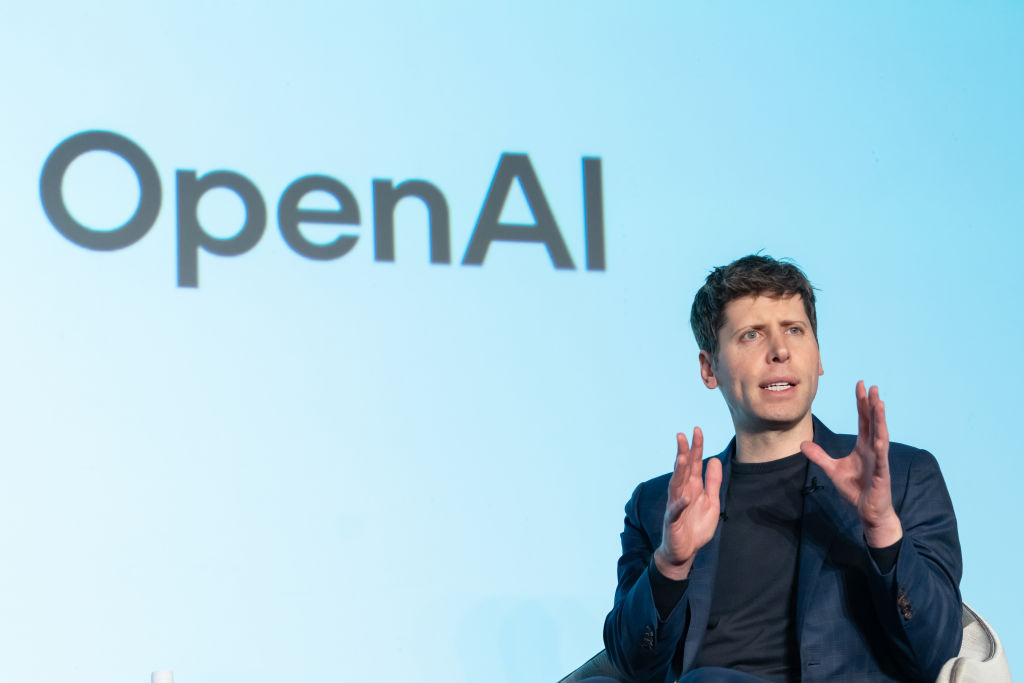







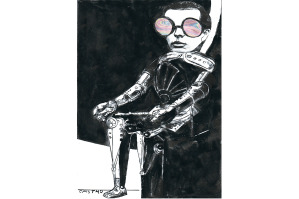

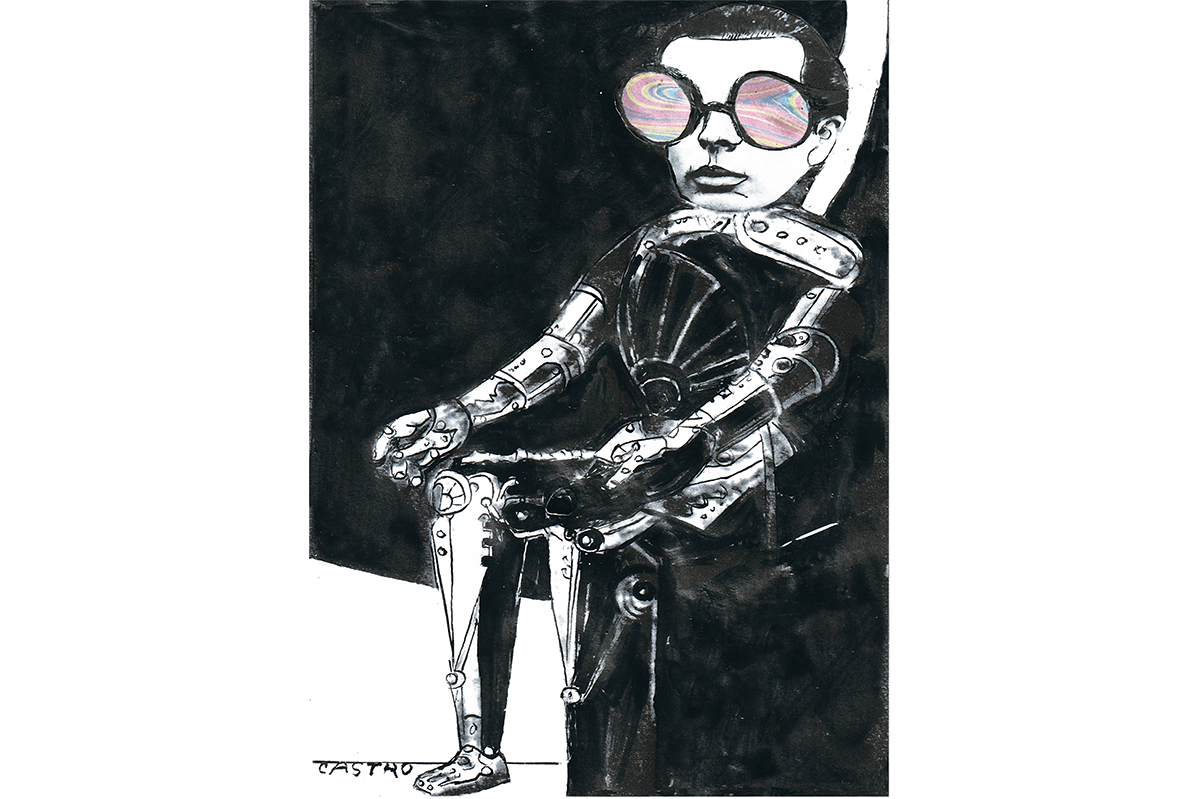
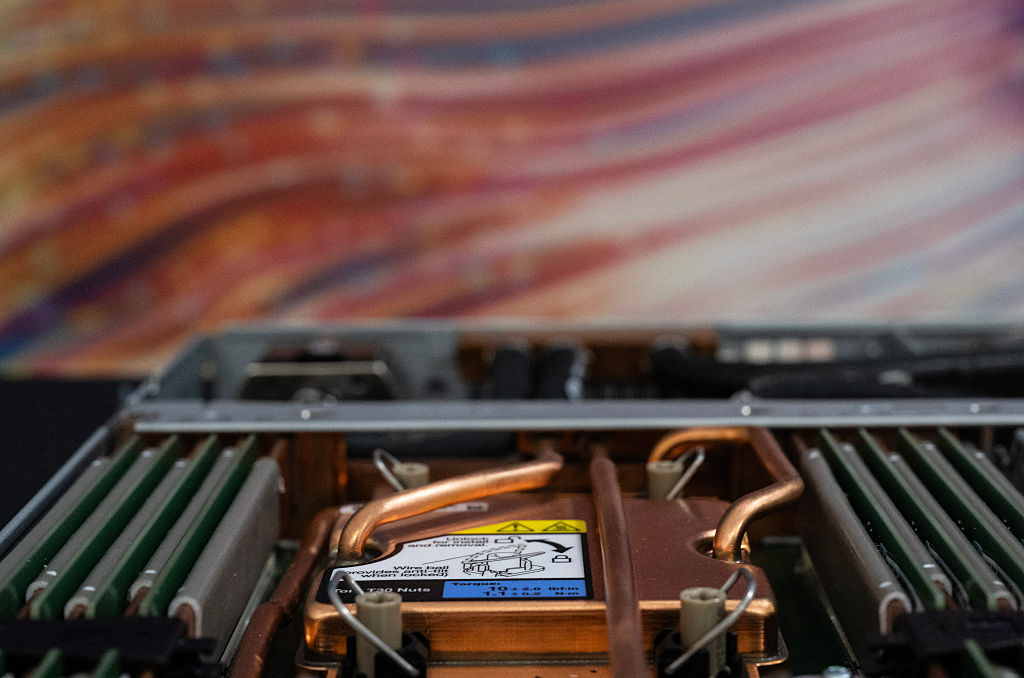

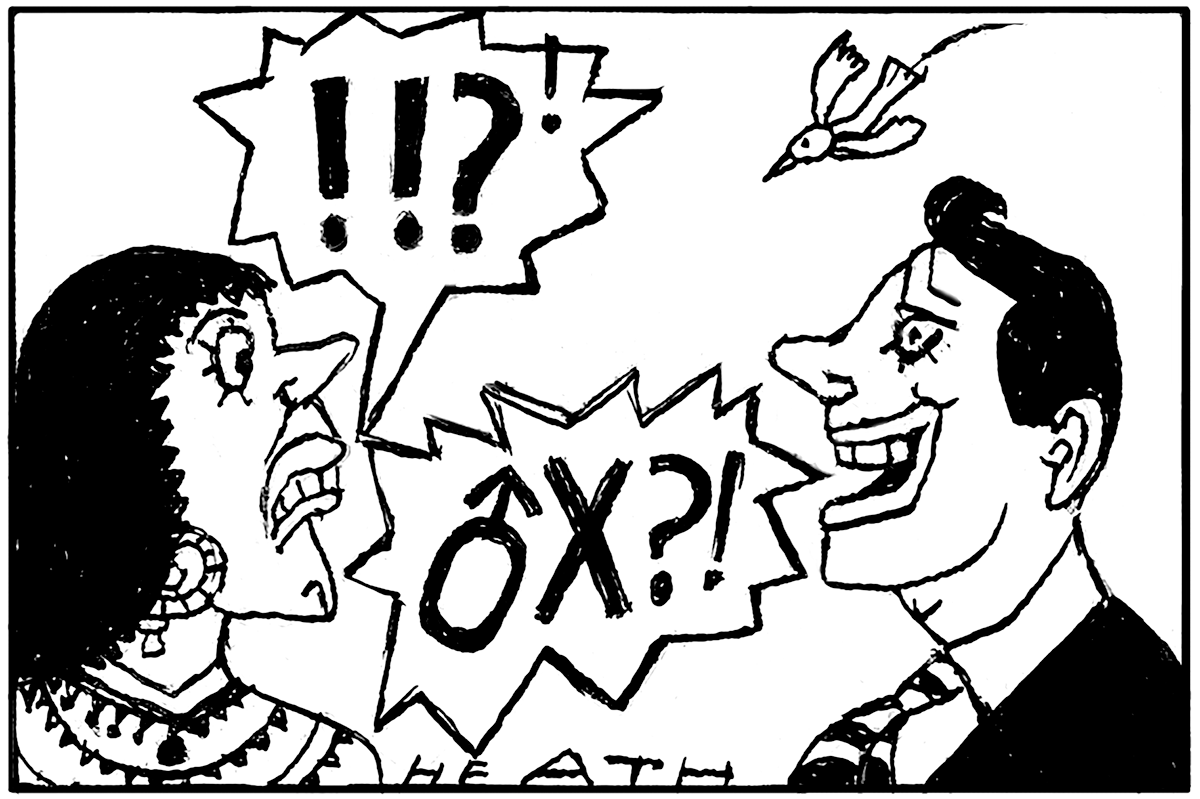
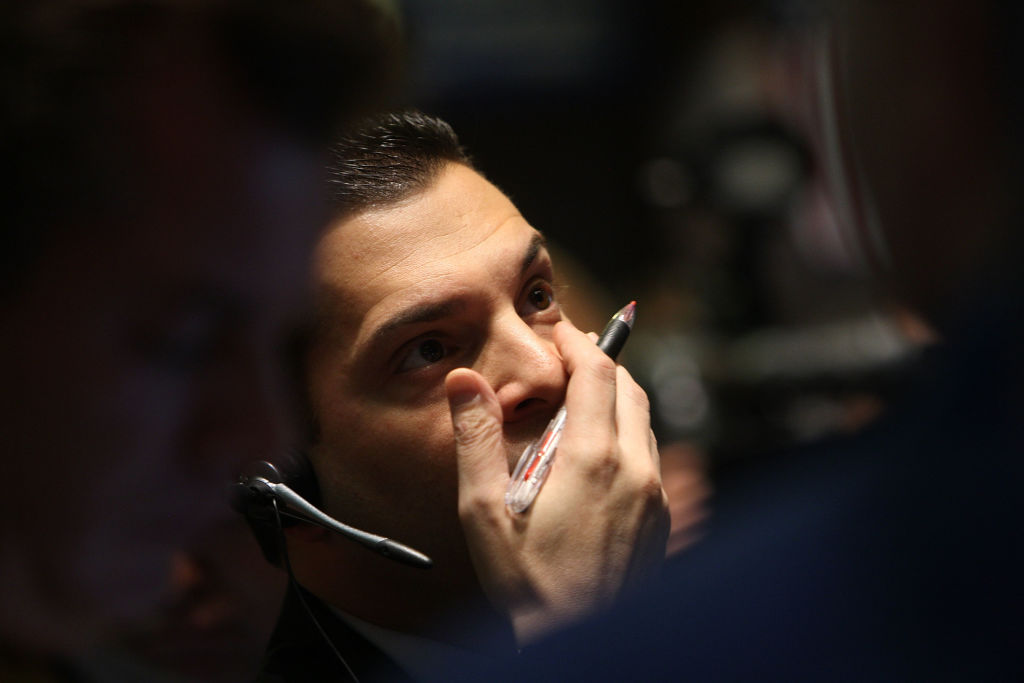
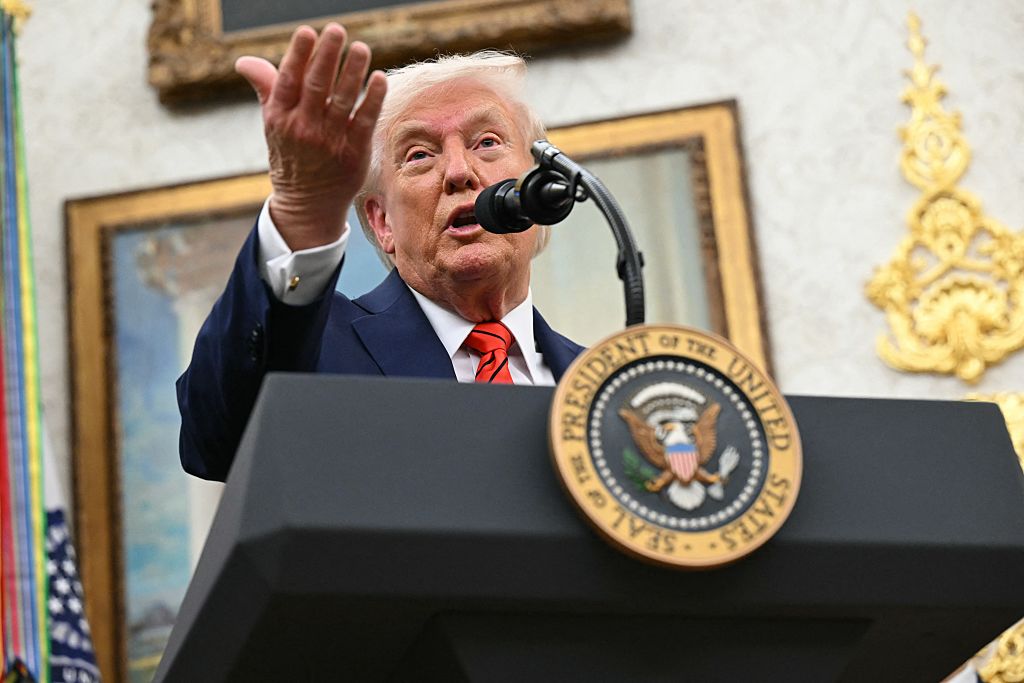







Leave a Reply